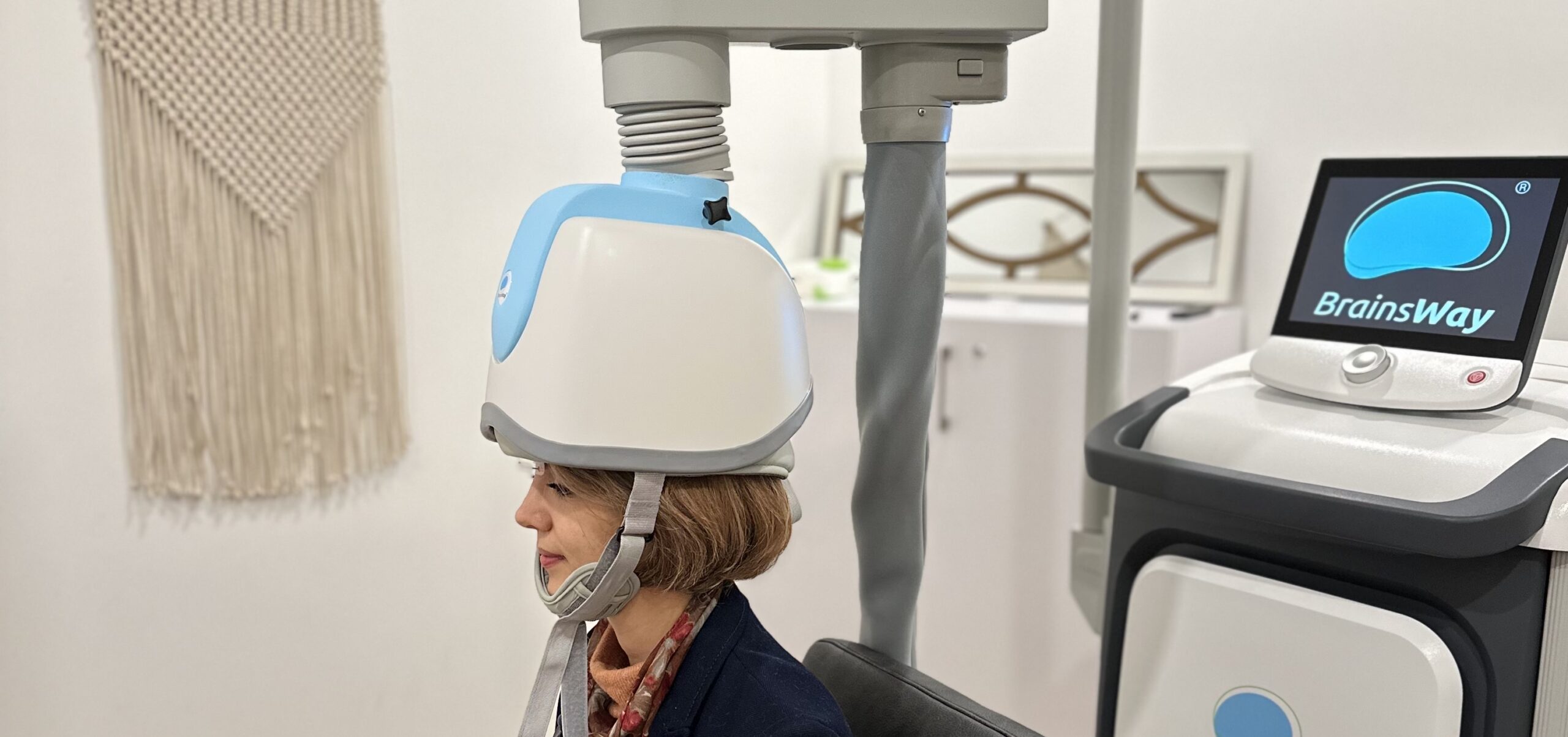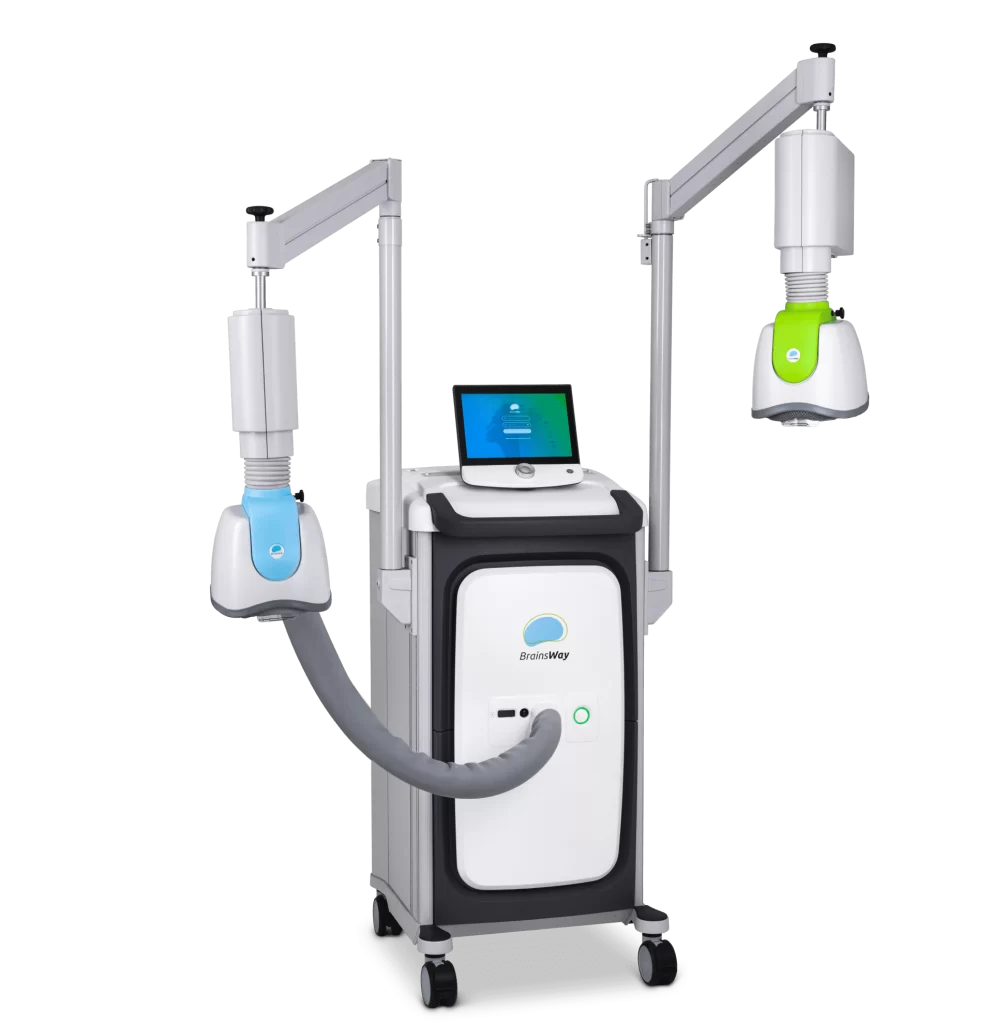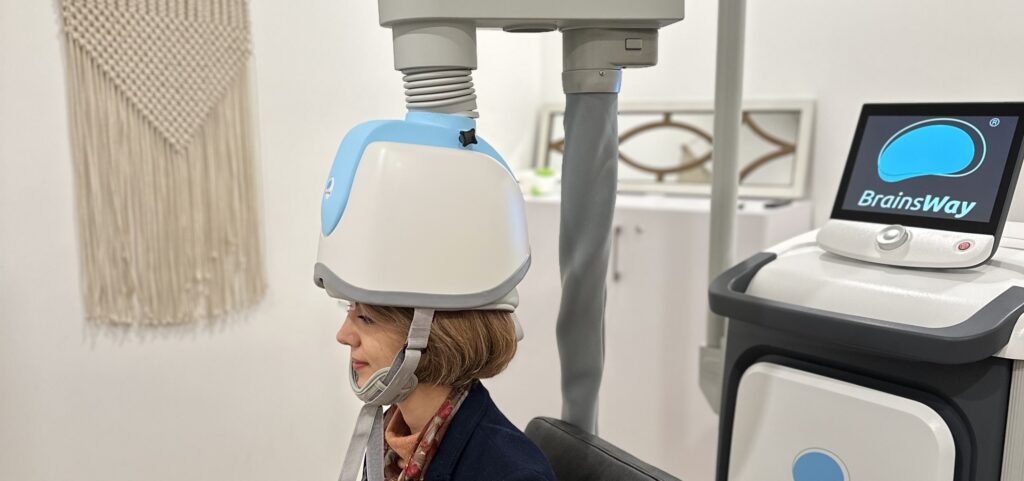Transcranial Magnetic Stimulation
Transcranial Magnetic Stimulation

What is Transcranial Magnetic Stimulation (TMS)?
Transcranial Magnetic Stimulation (TMS) is a non-invasive treatment that directs recurring magnetic energy pulses at specific regions of the brain.
What is TMS used for?
This procedure is used as a gentle treatment for a wide range of brain health conditions including depression, anxiety disorders, obsessive-compulsive disorder, autism, post-traumatic stress disorder, pain, and addiction.
What to expect
TMS requires a series of treatment sessions to be effective. Generally, sessions are carried out daily; five times a week for four to six weeks.
TRANSCRANIAL MAGNETIC STIMULATION May Treat:
Start your mental health journey!
What is Transcranial Magnetic Stimulation (TMS)?
Transcranial Magnetic Stimulation (TMS) is a non-invasive treatment that directs recurring magnetic energy pulses at specific regions of the brain.
What is TMS used for?
This procedure is used as a gentle treatment for a wide range of brain health conditions including depression, anxiety disorders, obsessive-compulsive disorder, autism, post-traumatic stress disorder, pain, and addiction.
What to expect
TMS requires a series of treatment sessions to be effective. Generally, sessions are carried out daily; five times a week for four to six weeks.
Book a 15-Minute Free
Phone Consultation
TRANSCRANIAL MAGNETIC STIMULATION May Treat:
BrainsWay’s Deep TMS flagship technology is based on the H-Coil, that features a novel patented structure designed to maximize electrical stimulation of deep brain regions and includes the following unique features:
- Coil elements tangential to the head and close to target brain regions
- Location of return paths of electrical impulses remote from target area
- Convergence of numerous electric pulses from various directions
- Coil elements parallel to target bundles
- Flexible base suited to head shape
BrainsWay Deep TMS has been validated in 60+ randomized controlled trials (RCTs) with sham (placebo) involving over 3,000 patients and is currently being evaluated in 10+ ongoing RCTs. Research on Deep TMS has led to 300+ publications. No traditional TMS company has committed to this level of study of their technology. In everyday use, nearly 600 BrainsWay systems are in operation across North America, and approximately 100,000 patients have been treated in over 2.5 million treatment sessions.
Deep TMS technology enables non-invasive activation of deeper and broader brain structures than traditional figure-8 coil TMS systems, allowing the H-Coil to potentially address a wider range of neuropsychiatric conditions.

During your consultation process, we will determine the best care for you based on your personal needs.
Transcranial Magnetic Stimulation (TMS) is a non-invasive, treatment that directs recurring magnetic energy pulses at specific regions of the brain. This gentle procedure is used to treat many conditions including depression, anxiety disorders, obsessive-compulsive disorder ( OCD), autism spectrum disorder, post-traumatic stress disorder (PTSD), pain, and addiction. Common side effects may include headache, scalp discomfort, or tingling/twitching of the facial muscles during the session. TMS requires a series of treatment sessions to be effective. Generally, sessions are carried out daily, five times a week for four to six weeks. During your consultation process, we will determine the best care for you based on your personal needs.
ASSESS
A doctor will perform your assessment to determine whether you might benefit from TMS and if it is safe for you. TMS is Health Canada approved for treatment of major depressive disorder and is used as a treatment for several other conditions.
TREAT
If your condition is assessed as one which would potentially benefit from TMS treatment, the procedure, and side effects will be discussed and if you wish to proceed, you will be set up for a course of treatment that commonly involves treatment sessions five days per week for approximately four to six weeks.
MONITOR
During your treatment, you receive periodic check-ins by clinicians to ensure you are responding well to the treatment. Our clinicians will also assist your physician in monitoring your response to treatment and in some cases may make recommendations for further treatment.




